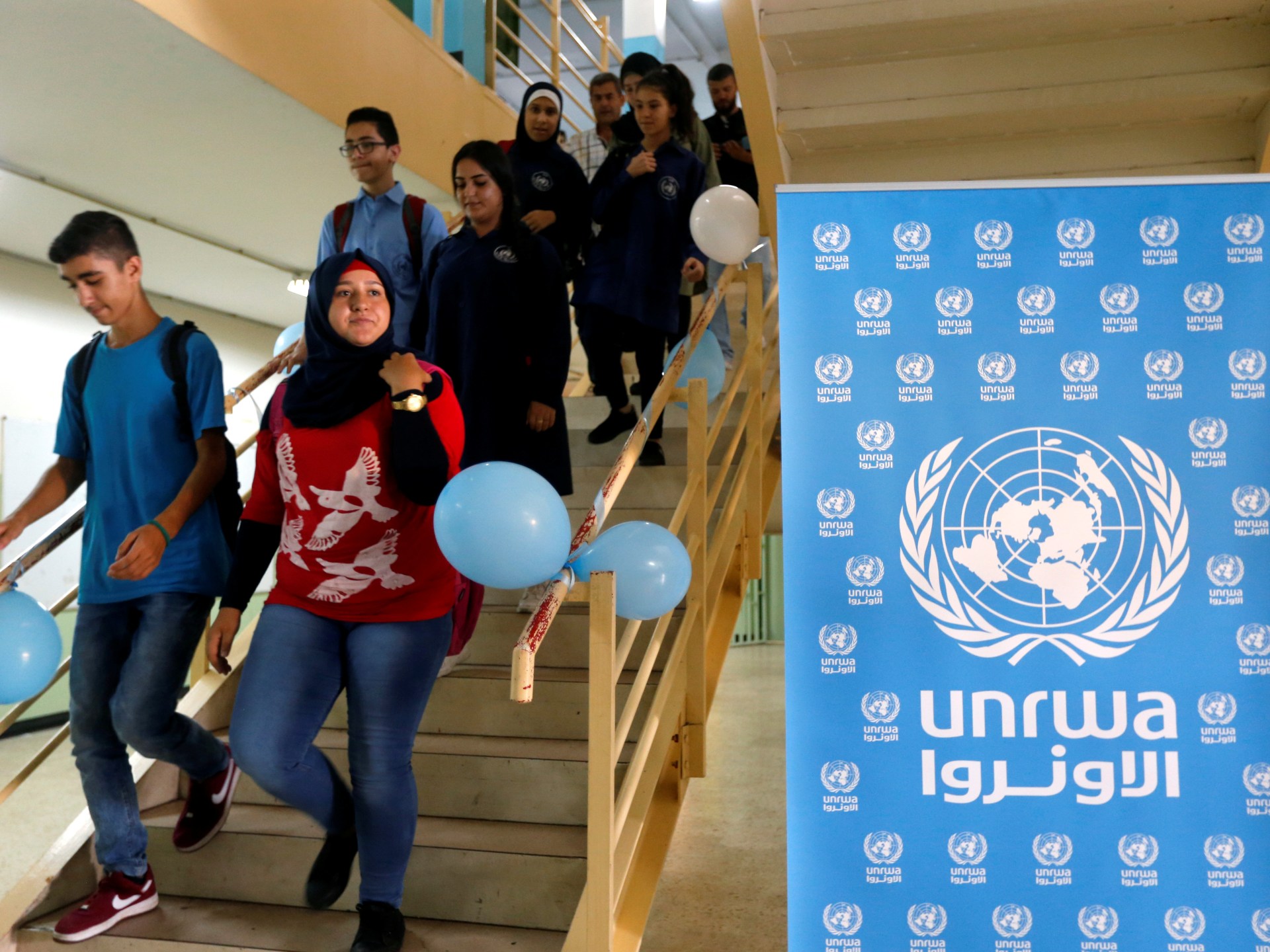UNRWA said that the suspension of funding will stop its services by the end of this February (Reuters)
The possibility that the United Nations Relief and Works Agency for Palestine Refugees (UNRWA) will be forced to stop its services by the end of February increases the state of despair in refugee camps across the region, where the agency has long represented a lifeline for millions.
This possibility also raises concerns in Arab countries that host refugees and do not have the necessary resources to fill the gap and fear that any cessation of the agency’s services will lead to significant destabilization.
UNRWA, which provides health care, education and other services, has been experiencing a major crisis since Israel said that 12 of the agency’s 13,000 employees in Gaza participated in the attack led by the Islamic Resistance Movement (Hamas) on Israel on October 7. This caused donors to suspend funding for the agency.
UNRWA hopes that these donors will review their decision once an initial report on these allegations is published in the next few weeks.
Right of Return
The importance of UNRWA for the Palestinians goes beyond merely obtaining vital services, as they view its presence as being linked to preserving their rights as refugees, especially their hope of returning to their homes from which they or their ancestors were expelled during the war that accompanied the establishment of Israel on the land of Palestine in 1948.
In Burj al-Barajneh camp on the outskirts of Beirut, Raghda al-Arabji (44 years old) said that she relies on UNRWA to educate two of her children and cover the medical bills of a third child who suffers from an eye problem.
She added, "For example, I have two children at school. I don't pay books, I don't pay stationery, I don't pay registration fees, I don't pay school fees. I benefit from UNRWA as a doctor... Now, if UNRWA doesn't have all this, I can't do it."
She added that the agency also paid the costs of cancer treatment for her late husband, who died 5 months ago.
Raghda said that Burj el-Barajneh, which is a residential area made up of deplorable buildings and narrow streets, depends on UNRWA in various ways, including programs that provide $20 a day to workers, which is an important income for refugees who are prevented from obtaining many jobs in Lebanon.
She described the difficult situation that the Palestinians are experiencing in Lebanon, saying, "We are dead and we are alive." She appealed to donors to continue funding the agency, "Do not kill our hope. There are many things that I find difficult and difficult."
Musa Ibrahim Derawi, a refugee in Burj el-Barajneh, also expressed his fear for Palestinian children if UNRWA schools were forced to close their doors. He added, "You are helping to ignore an entire generation. When you are not able to put your son in school, you want to leave him on the street. What does the street raise?"
UNRWA services
UNRWA was established in 1949 to provide vital services to Palestinian refugees, and currently provides its services to approximately 5.9 million Palestinians throughout the region. More than half a million children also enroll in its schools, and its clinics receive more than 7 million visits every year, according to its website.
Juliette Touma, the agency's communications director, said, "The role played by UNRWA in protecting the rights of Palestinian refugees is essential."
UNRWA stressed that if the accusations against its 12 employees are true, they represent a “betrayal” of the values of the United Nations and the people it serves.
Israel wants to stop the work of UNRWA; Israeli Prime Minister Benjamin Netanyahu said on January 31 that “we must replace UNRWA with other United Nations agencies and other aid agencies if we want to solve the Gaza problem as we plan.”
In Jordan, Palestinians organized protests against any such move. Banners were raised during a protest on February 2 in Amman with the slogan: “The destruction of UNRWA will not pass... Yes to the right of return.”
Helmy Akl, a refugee born in Al-Baqaa Palestinian refugee camp, 20 kilometers north of Amman, said that his ration card with the agency “proves that I and my children are refugees...it preserves my rights.”
Disastrous situation
Arab countries hosting Palestinian refugees have long supported their right to return, rejecting any suggestion that they should be resettled in the countries to which they fled in 1948.
UNRWA estimates the number of Palestinian refugees residing in Lebanon at up to 250,000.
Hector Hajjar, Minister of Social Affairs in the Lebanese caretaker government, said that the decisions of donor countries to suspend aid to the agency are “unfair and politically motivated, and their repercussions will be disastrous for the Palestinians.”
He added, "If someone sees the camps in any conditions, in miserable conditions... If we prevent the Palestinian, what will we tell him to do? We will tell him that he will go to death or go to extremism."
He added that the decision would destabilize the Lebanese as well as the Palestinians and refugees fleeing the war in neighboring Syria.
Concerns exist
In Jordan, the UNRWA crisis has highlighted long-standing concerns. Jordan hosts about two million registered Palestinian refugees, most of whom hold Jordanian citizenship.
Officials fear that any move to dismantle UNRWA will weaken their right to return, shifting the burden to Jordan.
Norway, one of the donors that did not cut its funding to the agency, said it was somewhat optimistic that some countries that temporarily suspended its funding would resume it, noting that the situation could not continue for long.
The United States said UNRWA needed to make “fundamental changes” before it could resume funding.
Source: Reuters

